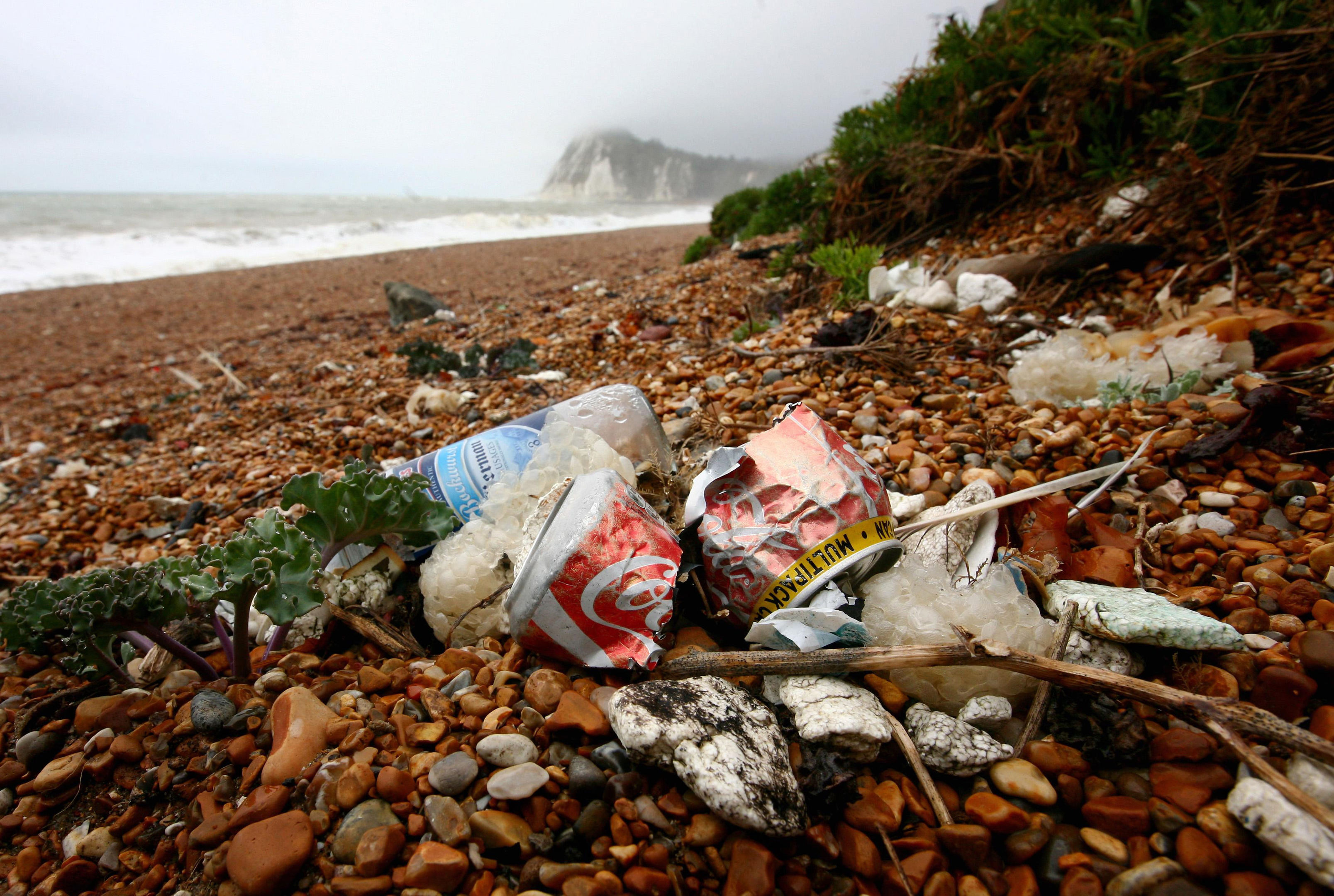
LITTER on beaches targeted in a national clean-up rose by 10% this year, with a fifth of the rubbish made up of “on-the-go” food and drinks items such as cups, foil wrappers and bottles.
On average, 138 pieces of food and drink waste were found for every 100 metres of beach, with items picked up in the Marine Conservation Society’s Great British Beach Clean ranging from plastic cutlery and straws to sandwich packaging and lolly sticks.
On-the-go items made up 20% of all litter found in this year’s annual survey and clean-up, and 63% of the beach rubbish that comes from the public, the Marine Conservation Society (MCS) said.
The charity is calling for a levy on single-use plastic items handed over free when people buy food and drink to eat while out and about, such as straws, cups, lids, stirrers and cutlery, to help stop the rising tide of plastic choking the oceans.
The call comes amid rising concern over plastic waste in the oceans, most recently highlighted by the BBC’s Blue Planet II documentary series, which has prompted the Government to pledge to look at taxes or charges for single-use plastics.
Lizzie Prior, MCS beach and river clean project officer, said: “The 5p single-use carrier bag charge has made a massive difference to the number of plastic bags entering our seas.
“If a levy was placed on single-use plastic such as straws, stirrers, cutlery, cups and cup lids, we’re confident that we’d find fewer of these items on our beaches.”
MCS chief executive Sandy Luk said: “Our beach clean evidence shows a shocking rise in the amount of litter this year. Our oceans are choking in plastic.
“We urgently need a levy on single-use plastic as a first step.”
Overall, the amount of litter picked up in the survey rose 10% on 2016’s figures, with an average of 718 bits of rubbish found on every 100 metres of beach, as 6,944 volunteers scoured 399 stretches of UK coastline for this year’s event.
There has been a 27% increase in plastic or polystyrene items since 2008, with small pieces up 11% on 2016 and 38% in the decade, the MCS said.
In better news, average numbers of plastic drinks bottles, plastic cups, paper cups and lids are down on last year.
And there has been a 28% drop in bags found on beaches since 2011 when the plastic bag charge was first brought in, in Wales.
But the Great British Beach Clean has also revealed a 94% rise in wet wipes found on UK beaches in a single year.
MCS urged retailers to better label products consumers think can be flushed down the toilet, and for manufacturers to remove plastic from their “flushable” products.

Enjoy the convenience of having The Sunday Post delivered as a digital ePaper straight to your smartphone, tablet or computer.
Subscribe for only £5.49 a month and enjoy all the benefits of the printed paper as a digital replica.
Subscribe